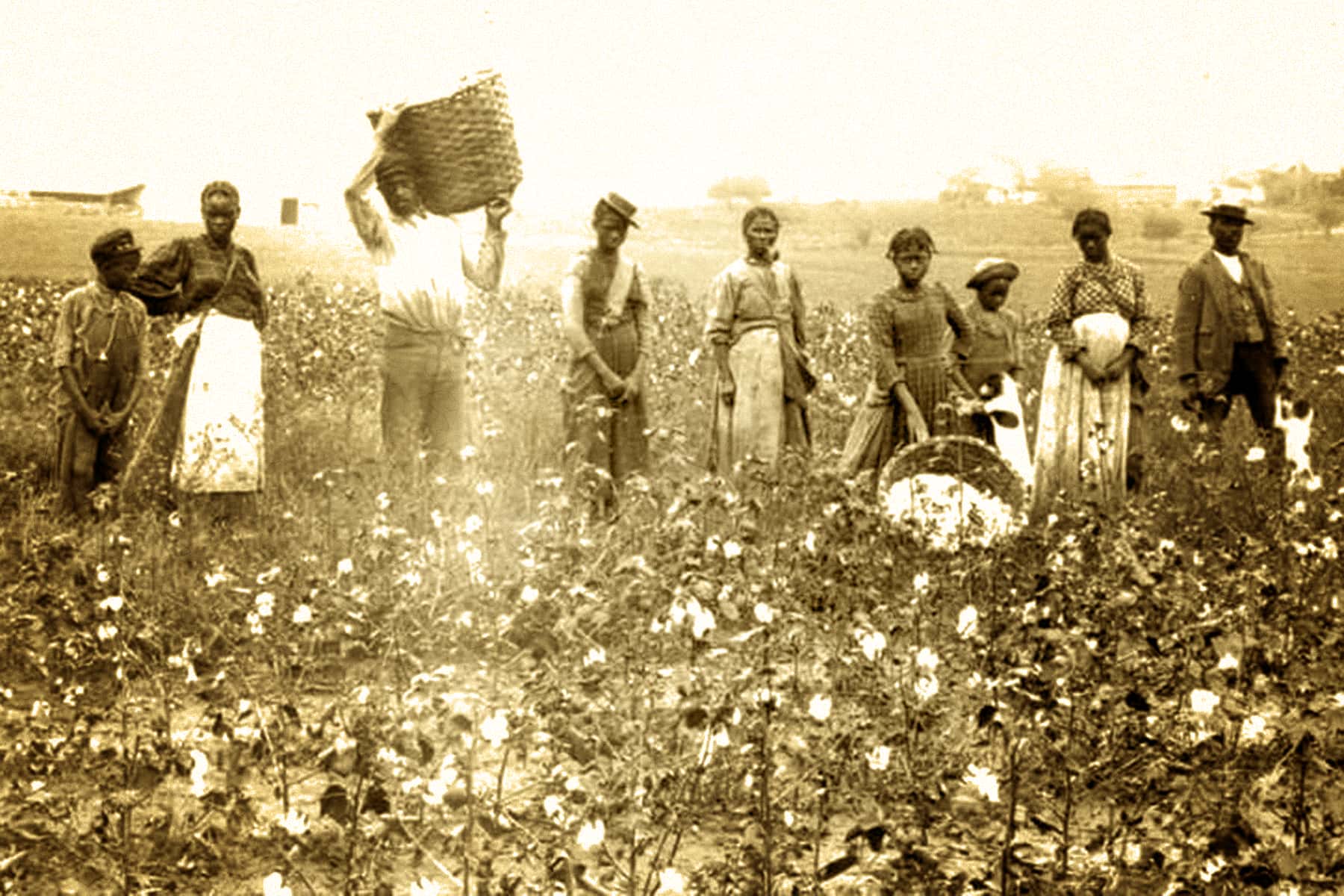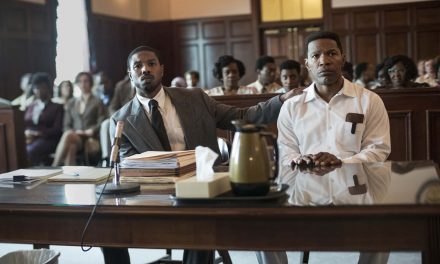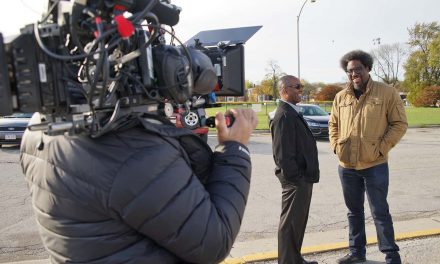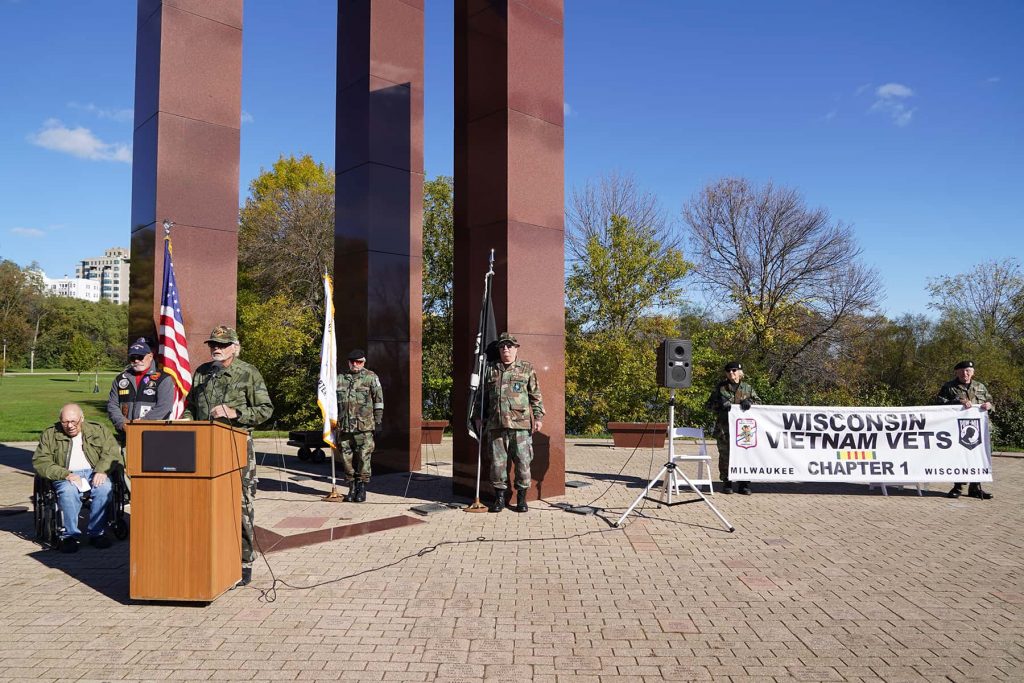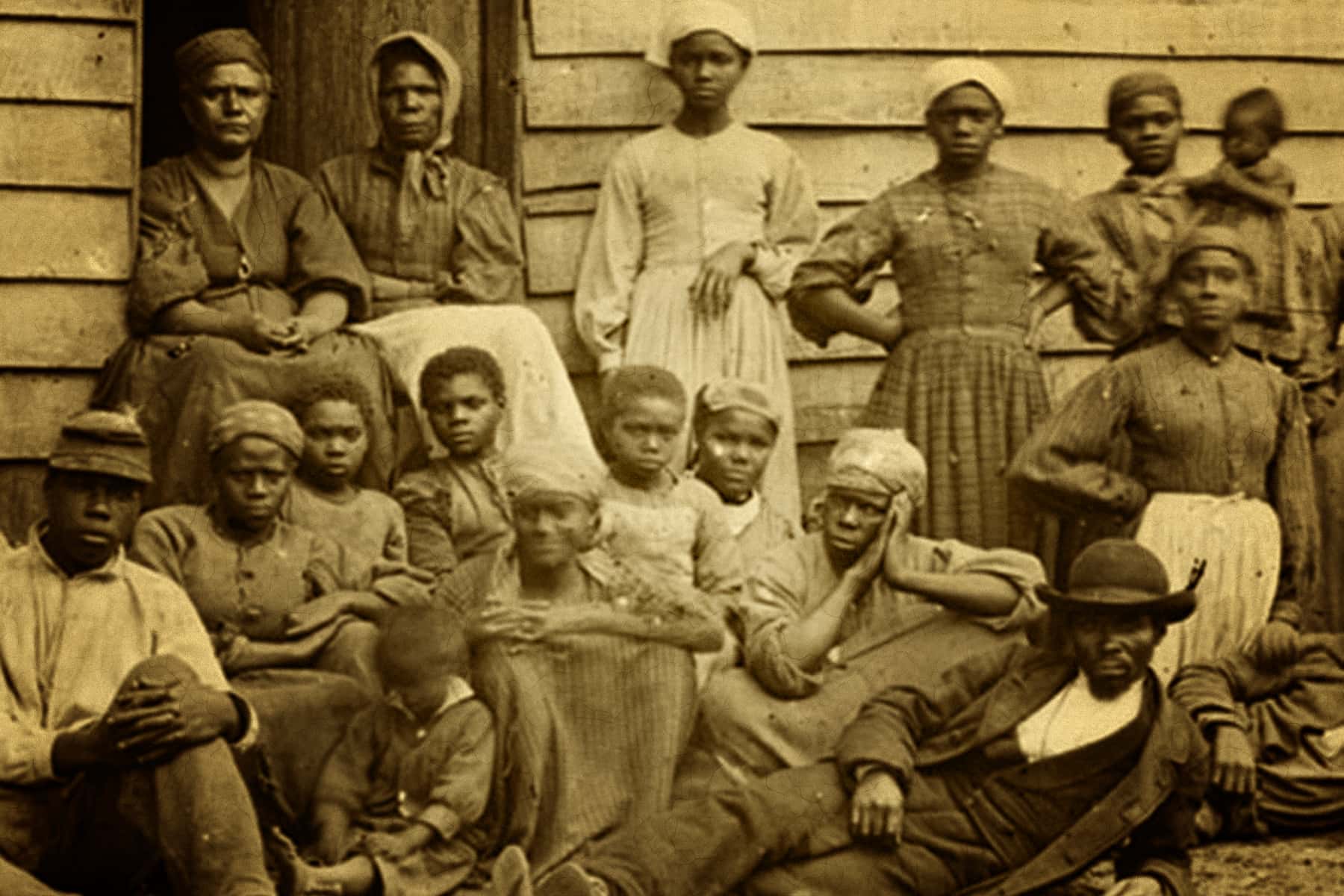
“One can give freedom only by setting someone free. This, in the case of the Negro, the American republic has never become sufficiently mature to do. White Americans have contented themselves with gestures now described as tokenism… for as they like to say Progress.” – James Baldwin
In August of this year, we will mark 400 years since the first African captives arrived in the English colonies. They arrived in shackles and were sold to the British colonists for food and water. The historical record of their arrival was distorted by John Rolfe who claimed that “20 and odd Negroes” were “bought for victuals,” from a Dutch Man of War. This was an attempt to blame the Dutch for what the English were responsible for.
Until recently historians sold the narrative of this Dutch Man of War without questioning the version in primary documents. In fact, the story was much more complicated. The Africans were Angolans. They had been captured by the Portuguese on the Central African coast during a divisive wars set in motion by Portugal to enrich itself. They had for years attacked the Kongo and Ndongo kingdoms, among others, to gain the commodity of black bodies that were the cargo on the second leg of European ships partaking in the massively profitable trade in humans.
What we have been told was the African slave trade was not African but European. The impetus to the capture and enslavement of untold millions came form the greed of Portugal, then Spain, France, Holland, England, and eventually the Americans. These and many other European nations built a system of trade that sent European goods to be sold in “trading post” that they themselves had built along the coast of mostly West Africa.
Those in the business knew these fortresses, with their huge cannons pointing out into the Atlantic Ocean, as factories. The largest and most prominent of these was Cape Coast Castle in what is now the nation of Ghana. Further down the coast, Angola was the jewel of the Portuguese colonial system. It provided a significant percentage of the Africans who arrived in the Americas. They took most of these Africans from Angola to Brazil. It is estimated that 40% of all Africans who survived the devastating Middle Passage disembarked in Brazil. By contrast only 3 to 5% arrived in the present day United States.
The captive Angolans were forced onto ships in the huge, fortified Portuguese slaving port of São Paulo de Luanda, many after being forced to march hundreds of miles from the interior. These twenty or so Africans that would land in Virginia in August 1619 left São Paulo de Luanda onboard the slaving ship San Juan Bautista along with over 300 more captives. The ship was bound for Vera Cruz, New Spain (present day Mexico). Over that summer the ship traversed the normal trading routes across the Atlantic.
These slaving ships had been for many years the victims of pirates. Despite the narrative of pirates as stealing valuable cargo such as gold and silver, African captives were a valuable commodity to be stolen as well. As the San Juan Bautista got close to its destination two English pirate ships, the White Lion and the Treasurer, attacked it. They stole 50 to 60 of the Africans onboard. The Treasurer was partly owned by the deputy governor of Virginia and famously delivered Pocahontas to England three years earlier. The White Lion’s Captain bore a Dutch letter of marque, paperwork that allowed him to attack and plunder Spanish ships.
The White Lion arrived at Point Comfort near what is now Hampton, Virginia, where the twenty or so Africans were traded for food and water. They would eventually be sold in Jamestown. Although no laws had been written legalizing slavery in the colony, wealthy English planters including colonial Governor Sir George Yeardley acquired the Africans. Only a few days later the Treasurer arrived and sold as many as nine Africans.
These Africans were the first in the British colonies in America, but were preceded by many others who arrived in Spanish and Dutch colonies years earlier. For most of us who have learned this history, we have been told that the Africans were indentured servants because legally sanctioned slavery did not exist in the colony at that time. This is, in my opinion, a lie.
Regardless of their condition in the colony, and not much is known about them, they did not sign a letter of indenture to be transported voluntarily to the New World. They clearly left Angola on a slaving ship against their wishes.
For the past 400 years, this small group of African captives has grown by natural means and by further transplantation against their will on subsequent slaving vessels. All of these ships were owned or chartered by whites. It matters little that they were Dutch, French, Spanish Portuguese, or American. What is clear in the historical record is that whites brought them to these shores. Those Africans who collaborated with this ugly business are known as factors. They “assisted” in many cases at gunpoint, the Europeans who came to take this “Black Cargo” from the shores of Africa. Greed is indeed colorblind.
But if we assess this business of selling African men, women, and children by the millions, who really benefited? Obviously the bulk of the wealth created went into the banks of Europe and America. The free labor of hundreds of millions of African captives from the 1400s through the late 1880s in Brazil, enriched whites in ways that are impossible to quantify. What we can see today are the vestiges of this stolen labor. The extreme poverty of Africa is a testament to the losses during centuries of European slavery and ensuing colonization by heavily armed Europeans. By contrast, the riches of Europe and America, as well as the nation-states created by Europeans in the Americas, are the lasting legacy of this brutally abusive system we simply call slavery.
As if something so horrific as the largest forced migration in human history, and centuries of enslavement and degradation can be summed up with one word. Here in the United States, we continue to grapple with the history and legacy of the role played by the enslavement of tens of millions of these Africans and their brethren. We have been dishonest about his ugly part of the nation’s history for so long that it is nearly impossible to have a decent, productive conversation in mixed company about it.
Many whites are so uncomfortable having this conversation that we are writing history books that dismiss the history by referring to these captive Africans as “workers and immigrants.” I’ve heard for many years that “we,” meaning black people, need to get over slavery. How is this possible when whites can not get over it themselves? The enslavement of Africans is one of the foundational institutions that created this country. The Industrial Revolution that began in the United Kingdom and spread to the United States was driven by the capital generated by the free labor of my ancestors.
The banks, stock markets, agricultural conglomerates and so much more of the economic engine of America could have never existed without the goods and commodities produced with back breaking and deadly work done by millions of black people. Somehow we are supposed to forget the stolen labor, and broken bodies and minds of our not so distant relatives. We are to look at America as the home of the free and land of the brave when we know that those phrases are lies. The Founding Fathers created a republican form of government, that perpetuated what had existed since before they were born, a Slavocracy.
We were stolen from our places of birth and sold like cattle for two hundred forty-six years in the United States, and the English colonies which preceded it. How do we forget this? In 2019 there are over forty million descendants of these enslaved Africans living in the United States. By nearly every measure, many of us are the most downtrodden, and disrespected people in the nation. We have endured nearly four hundred years of rapes, beatings, murders, theft of opportunity and degradation, yet somehow we are supposed to be okay.
We are not okay. Nor is America okay. A nation, which refuses to admit that its sinful past still haunts the victims of these sins is the country we call home.
“Five score years ago, a great American, in whose symbolic shadow we stand today, signed the Emancipation Proclamation. This momentous decree came as a great beacon light of hope to millions of Negro slaves who had been seared in the flames of withering injustice. It came as a joyous daybreak to end the long night of their captivity.
But one hundred years later, the Negro still is not free. One hundred years later, the life of the Negro is still sadly crippled by the manacles of segregation and the chains of discrimination. One hundred years later, the Negro lives on a lonely island of poverty in the midst of a vast ocean of material prosperity. One hundred years later, the Negro is still languishing in the corners of American society and finds himself an exile in his own land. So we have come here today to dramatize a shameful condition.
In a sense we have come to our nation’s capital to cash a check. When the architects of our republic wrote the magnificent words of the Constitution and the Declaration of Independence, they were signing a promissory note to which every American was to fall heir. This note was a promise that all men, yes, black men as well as white men, would be guaranteed the unalienable rights of life, liberty, and the pursuit of happiness.”
– Martin Luther King Jr. “I Have a Dream Speech”
We are constantly told about progress. Since the first abolition of slavery in Northern states, blacks have been told we are making progress. How can this be measured? Obviously changes have taken place. Most of us are no longer in shackles, even though a significant number are imprisoned at a higher rate than any other ethnic group. We had a bi-racial man become President and win two elections. We are told that he was the first black President. The way we define Barack Obama and many others as black despite them having one white parent is a whole other issue.
Black people have been told that they are inferior to whites for hundreds of years. Even black children born from a white parent become black automatically, by the infamous one-drop rule. That racial classification of purity asserted that any person with “one drop” of black blood is considered back.
We improperly measure progress by looking at and celebrating milestones. The Thirteenth Amendment is one such milestone we celebrate as progress. The amendment, which “ended” slavery, used language borrowed from the states that abolished slavery before the federal government did.
The most troubling wording of this amendment is that “neither slavery nor involuntary servitude, except as a punishment for crime whereof the party shall have been duly convicted, shall exist within the United States, or any place subject to their jurisdiction.” This deliberate language created a paradox. Slavery could still be legally practiced after it was abolished.
This led to widespread mistreatment of those the nation supposedly freed after the slaughter known as the Civil War. Despite the mythology created by former Confederates known as the “Myth of the Lost Cause,” the war was about slavery. More clearly it was about maintaining legalized enslavement of black people. For proof, anyone can read the Letters of Succession written by the eleven states that broke their allegiance with the United States and formed the new nation they called the Confederate States of America. The issue of states rights was about states having the ability to control their own internal institutions, free from interference by the federal government.
Measuring progress, by the standard of abolition, was actually tainted. In fact, Lincoln’s famous Emancipation Proclamation was tainted as well. A careful reading of that famous proclamation shows the many exemptions of his abolition of slavery.
“Now, therefore I, Abraham Lincoln, President of the United States, by virtue of the power in me vested as Commander-in-Chief, of the Army and Navy of the United States in time of actual armed rebellion against the authority and government of the United States, and as a fit and necessary war measure for suppressing said rebellion, do, on this first day of January, in the year of our Lord one thousand eight hundred and sixty-three, and in accordance with my purpose so to do publicly proclaimed for the full period of one hundred days, from the day first above mentioned, order and designate as the States and parts of States wherein the people thereof respectively, are this day in rebellion against the United States, the following, to wit:
Arkansas, Texas, Louisiana, (except the Parishes of St. Bernard, Plaquemines, Jefferson, St. John, St. Charles, St. James Ascension, Assumption, Terrebonne, Lafourche, St. Mary, St. Martin, and Orleans, including the City of New Orleans) Mississippi, Alabama, Florida, Georgia, South Carolina, North Carolina, and Virginia, (except the forty-eight counties designated as West Virginia, and also the counties of Berkley, Accomac, Northampton, Elizabeth City, York, Princess Ann, and Norfolk, including the cities of Norfolk and Portsmouth[)], and which excepted parts, are for the present, left precisely as if this proclamation were not issued.
And by virtue of the power, and for the purpose aforesaid, I do order and declare that all persons held as slaves within said designated States, and parts of States, are, and henceforward shall be free; and that the Executive government of the United States, including the military and naval authorities thereof, will recognize and maintain the freedom of said persons.”
The operative words, “said designated States, and parts of States” shows clearly that many of the enslaved Africans were never meant to be free. Lincoln purposely did not free all the slaves. The many enslaved in the slaving states of Maryland, Delaware, Kentucky, Missouri – as well as the state of Tennessee which was part of the Confederacy – were exempted from freedom as Lincoln stated with the words “as if this proclamation were not issued.”
Three amendments to the Constitution conferring freedom, citizenship, and voting rights for black men were created, but the nation failed to protect these rights. Murderous violence, displacement, thefts of land and other property would become the order of the day once the last of the federal troops were removed from the few Souther territories they still occupied in 1877. The Freedman’s Bureau documented the immense number of atrocities committed against the nearly four million freed blacks in the days after slavery “ended.”
More milestones were to come. The 1954 Brown v. Board of Education desegregation decision is celebrated despite its failure to end segregated schooling. The March on Washington in 1963 is celebrated by many despite the fact that less than a month later four black girls were murdered by dynamite in the Sixteenth Baptist Church in “Bombingham” Alabama. The 1965 Voting Right Act is celebrated despite it inability to protect the voting rights of blacks over the past fifty-one years. The 1968 Fair Housing Act is celebrated even in light of continuing discrimination on a vast scale in housing for blacks.
We, as a nation love, to celebrate milestones. Will we finally acknowledge this August the 400th anniversary of the arrival of those Africans who literally and figuratively changed the complexion of the United States? I doubt we will. It is an ugly part of American history that most people would prefer to avoid. It makes us cringe to think about the deliberate lies we have all been told, about how America became America. If we want to be better than we are and have been for four hundred years, we need to begin to honestly discuss and teach how we improperly measure progress.
“Injustice anywhere is a threat to justice everywhere. We are caught in an inescapable network of mutuality, tied in a single garment of destiny. Whatever affects one directly, affects all indirectly… I am sure that none of you would want to rest content with the superficial kind of social analysis that deals merely with effects and does not grapple with underlying causes…We know through painful experience that freedom is never voluntarily given by the oppressor; it must be demanded by the oppressed. Frankly, I have yet to engage in a direct action campaign that was “well timed” in the view of those who have not suffered unduly from the disease of segregation. For years now I have heard the word “Wait!” It rings in the ear of every Negro with piercing familiarity. This “Wait” has almost always meant “Never.” We must come to see, with one of our distinguished jurists, that “justice too long delayed is justice denied.”
– Martin Luther King Jr. “Letter From A Birmingham Jail”

